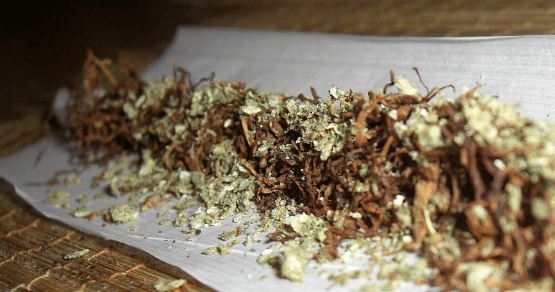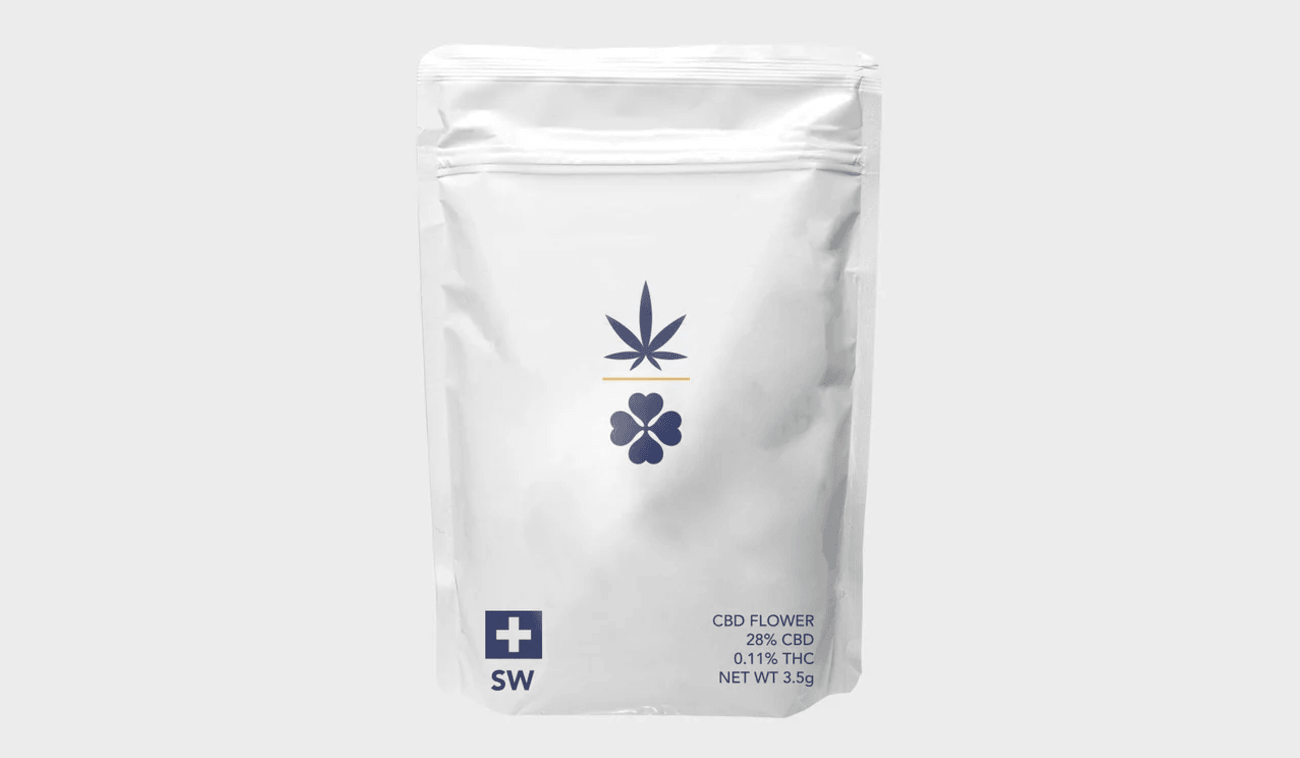Le CBD et le diabète sont un sujet de recherche permanent. On estime que le diabète touche 9,3 % des adultes âgés de 20 à 79 ans dans le monde. Il existe deux types de diabète, le type 1 et le type 2. Il s'agit d'un nombre impressionnant de personnes touchées par une maladie qui peut entraîner de graves problèmes de santé. Dans certains cas, elle peut même être mortelle.
Cette maladie chronique entraîne une résistance de l'organisme à la transformation de l'hormone insuline ou une production insuffisante de cette hormone. Le pancréas produit de l'insuline pour aider à stocker et à traiter le sucre qui fournit de l'énergie aux cellules, le glucose. La question que nous nous posons est la suivante : le cannabidiol (CBD) peut-il aider à traiter le diabète ?
Le CBD a le vent en poupe. Les utilisations potentielles de ce cannabinoïde dans le domaine de la santé ont frappé l'imagination collective. Il est désormais bien connu que cet extrait particulier de la plante de cannabis ne fait pas planer comme son parent psychoactif de la même plante, le tétrahydrocannabinol(THC). En fait, il est important de préciser que le CBD est extrait de la variante de cannabis qu'est le chanvre et que le THC se trouve dans la souche de cannabis qu'est la marijuana.
En tant que complément de santé, les études et les preuves anecdotiques suggèrent que cet extrait peut avoir un impact extrêmement positif sur votre santé. Il est largement considéré comme ayant des propriétés anti-inflammatoires et antioxydantes. Ce composé est souvent utilisé pour atténuer les symptômes du stress, améliorer la santé du sommeil et peut-être même traiter la douleur.
Une étude animale publiée dans l'European Journal of Pain indique que le CBD appliqué localement sur les articulations peut contribuer à réduire la douleur et l'inflammation liées à l'arthrite. D'autres études ont également montré des signes positifs dans le traitement des douleurs inflammatoires et neuropathiques par le CBD. D'autres études doivent être menées. Des sujets humains sont indispensables pour corroborer l'efficacité du CBD dans le traitement de la douleur.
Le CBD peut-il aider le diabète ?
De nombreuses personnes pensent que le CBD peut être utile dans le cadre d'un plan de traitement de certaines maladies chroniques comme le diabète, la sclérose en plaques et l'épilepsie. Bien que les études et la plupart des recherches sur l'efficacité du CBD dans le traitement de ces maladies soient encore en cours, il y a des nouvelles prometteuses pour les personnes souffrant d'épilepsie.
La Food and Drug Administration (FDA) des États-Unis a récemment approuvé l'Epidiolex, le tout premier médicament à base de CBD pour le traitement de l'épilepsie. De nombreuses études ont montré que le CBD avait un impact sur la réduction des crises, voire sur leur prévention. La perspective que ce composé puisse potentiellement offrir un certain soulagement aux personnes souffrant de maladies chroniques est formidable. Toutefois, il convient de souligner qu'à l'heure actuelle, nous ne parlons que de possibilités.
Certaines marques de CBD font des affirmations et des promesses inexactes sur le traitement par le CBD. Beaucoup de ces affirmations n'ont pas été prouvées. Elles sont souvent basées sur les résultats positifs de certaines études. Cependant, pour qu'un médicament soit définitivement prouvé, il doit faire l'objet de nombreuses études à grande échelle sur des sujets humains.
Les recherches et les études peuvent montrer des indicateurs positifs. Cependant, ces bénéfices ou hypothèses doivent être testés de multiples façons. De nombreuses études doivent corroborer et étayer ces résultats. Ce n'est qu'à ce moment-là qu'elles seront considérées comme prouvées aux yeux de la communauté scientifique. C'est particulièrement vrai pour les diabétiques qui espèrent que le CBD pourrait être bénéfique pour la gestion de leur maladie.
Vous avez peut-être déjà entendu parler de l'utilisation du CBD pour traiter le diabète. Cependant, les recherches se poursuivent pour déterminer si le CBD peut aider à maintenir le taux de sucre dans le sang, à apaiser l'inflammation et à soulager les douleurs nerveuses causées par le diabète. Jetons un coup d'œil à certaines recherches sur le CBD et le diabète et voyons ce qu'elles suggèrent.
La recherche actuelle sur le CBD pour aider les symptômes du diabète
Actuellement, la plupart des études menées sur le CBD et le diabète ont utilisé des animaux comme sujets d'expérimentation. Il s'agit généralement de souris ou de rats. Il est important de noter la différence entre la vie réelle et les conditions de laboratoire et, bien sûr, les différences biologiques entre le système endocannabinoïde humain et celui des rongeurs.
Bien que le CBD ait semblé bien fonctionner sur ces sujets, ces résultats pourraient ne pas s'appliquer à l'homme. Une étude a réduit le flux sanguin vers le cerveau de ses sujets rongeurs lorsqu'elle a testé le cannabidiol sur eux. Il s'agissait d'imiter les effets que le diabète peut parfois avoir sur le corps humain. Cette étude a montré que le CBD pouvait
- réduire le taux de sucre dans le sang
- réduire le taux de cholestérol
- Augmenter la production d'insuline
D'autres études menées sur des rongeurs ont montré que le CBD pouvait soulager l'enflure et la douleur causées par les lésions nerveuses dues au diabète. Elles indiquent que le CBD peut soulager l'inflammation chronique et la douleur neuropathique chez les souris. Certaines recherches ont montré que le CBD pouvait réduire le risque de diabète en favorisant les bonnes graisses et en aidant à transformer les mauvaises graisses en bonnes graisses, ce qui renforce la capacité des personnes à traiter le glucose.
Diabète et THC
L'impact de l'autre cannabinoïde important, le tétrahydrocannabinol (THC), a également été étudié. Une étude a montré que le CBD n'avait pas beaucoup d'impact sur la glycémie et les taux de lipides, alors que le THC en avait. Cependant, il a été constaté que le CBD réduisait la résistance à l'insuline et favorisait l'apparition d'hormones intestinales saines.
Comment le CBD aide-t-il à lutter contre le diabète ?
Il existe deux types de diabète, le type 1 et le type 2. Les causes du diabète de type 1 et du diabète de type 2 sont différentes. Le traitement de ces deux types de diabète est également différent. Le type 1 est une maladie auto-immune. Les personnes atteintes ne produisent pas d'insuline. Le type 2 provoque une résistance à l'insuline. Les deux sont des maladies chroniques, mais elles sont à l'origine d'un problème commun : l'organisme ne peut pas réguler ou traiter le glucose ou le sucre dans le sang.
Le glucose est le sucre qui alimente les cellules de l'organisme. L'insuline régule le glucose qui alimente les cellules. Lorsque vous consommez de la nourriture, le pancréas doit produire de l'insuline. Celle-ci transforme le glucose provenant des aliments. L'insuline lui permet de pénétrer dans les cellules d'une personne. Il est ensuite converti en énergie.
La plupart des cas de diabète sont de type 2, qui tend à se développer plus tard dans la vie. Les cellules ne sont alors plus capables de répondre à l'insuline ou deviennent résistantes à l'insuline. Dans les études qui ont été menées, le CBD s'est avéré prometteur pour aider les symptômes liés au diabète.
Inflammation
La surcirculation du glucose dans le corps peut entraîner une augmentation des niveaux d'inflammation. Le cannabidiol fait l'objet de recherches en tant qu'anti-inflammatoire depuis plusieurs années. Une étude du European Journal of PainLe cannabidiol est un anti-inflammatoire utilisé dans le traitement de la douleur chronique. Il est à espérer qu'au cours des prochaines années, d'autres études prouveront les propriétés anti-inflammatoires du CBD.
Dans une autre étude portant spécifiquement sur les effets d'un excès de glucose sur l'inflammation, le CBD a montré des indicateurs positifs dans le traitement de l'inflammation. La même étude suggère qu'il pourrait également compenser les dommages causés par le diabète aux parois des vaisseaux sanguins.
La douleur
Le diabète de type 2, en particulier, peut entraîner des douleurs et des gonflements des mains et des pieds. Une étude réalisée en 2017 sur des rongeurs semble suggérer que le CBD réduit l'inflammation de l'arthrose et la douleur nerveuse chez les sujets. Une autre étude portant sur la douleur neuropathique a été publiée dans le Journal of Experimental Medicine. Elle indique que le CBD pourrait être en mesure de supprimer la douleur des terminaisons nerveuses chez les rongeurs également.
Le CBD et la prévention du diabète.
Comme on dit, mieux vaut prévenir que guérir. Même si le CBD n'a pas d'effets positifs perceptibles sur les symptômes du diabète, ce serait incroyablement positif s'il pouvait prévenir l'apparition de la maladie. Il existe souvent des indicateurs très révélateurs du développement du diabète chez un individu bien avant qu'il ne se déclare.
Grâce à des changements de mode de vie et à un suivi attentif, il est possible de prévenir le diabète. Si le CBD pouvait agir comme un complément de santé qui prévient le diabète, ce serait une véritable aubaine pour les personnes exposées au risque de diabète. La revue Autoimmunity a publié une étude qui a révélé que le risque de diabète chez les souris diabétiques non obèses (NOD) était considérablement réduit si elles étaient traitées au CBD.
Le CBD est-il bon pour le diabète ?
Comme nous pouvons le constater, les indications fournies par les recherches menées sur des sujets d'expérimentation animale sont certainement positives. Il est tout à fait possible que le CBD contribue au traitement du diabète ou même qu'il prévienne son apparition. C'est peut-être la raison pour laquelle il existe tant d'allégations sur les bienfaits du CBD pour certaines maladies chroniques. Le potentiel de ce composé est tellement prometteur et porteur d'espoir.
Cependant, il est important de souligner qu'à ce stade, il ne s'agit que d'un potentiel. Certes, le CBD est largement considéré comme un antioxydant. Il s'agit d'un composé très bénéfique pour la santé.
En outre, il est également considéré comme un anti-inflammatoire. Ceci est particulièrement pertinent pour les symptômes du diabète. La surcirculation du glucose dans l'organisme, sans les ressources appropriées pour le traiter, est une source importante d'inflammation. Cette inflammation peut à son tour être à l'origine de douleurs, de gonflements et d'autres symptômes.
Quelle quantité d'huile de CBD faut-il prendre pour lutter contre le diabète ?
Il n'est pas possible de répondre à cette question de manière concluante, car le CBD n'a pas été désigné comme médicament contre le diabète. Cela dépend également si vous envisagez de le prendre dans le cadre d'un plan de traitement du diabète ou en tant que complément de santé pour prévenir l'apparition du diabète.
De plus en plus de personnes utilisent le CBD comme complément de santé dans l'espoir qu'il puisse aider à diverses choses et améliorer la santé en général. Il devient aussi courant que les vitamines et les suppléments de zinc.
Une chose importante à prendre en compte est de savoir si vous prenez d'autres médicaments prescrits par un médecin. Vous devez l'informer si vous envisagez d'ajouter le CBD à votre plan de traitement. Le CBD peut interagir avec certains médicaments et vous devez vraiment en tenir compte. La plupart du temps, le CBD interagit positivement avec d'autres médicaments, mais pas tous.
Conclusion
Le fait qu'un si grand nombre d'études commencent à être menées est un indicateur important du potentiel du CBD. Il est important de se rappeler que la recherche scientifique teste des hypothèses très spécifiques. Ainsi, dans le cadre d'une maladie chronique comme le diabète, une étude donnée peut uniquement tester la façon dont le CBD réagit à l'inflammation causée par la maladie. Et non l'impact global du cannabinoïde sur la maladie. Un composé n'est considéré comme bien étudié que s'il est évalué pour toutes les fonctions et tous les aspects d'une maladie.
Questions fréquemment posées
Il y a tant à dire sur la recherche médicale et les études. Comme toujours, il est important de faire la distinction entre ce qui est un fait avéré et ce qui est une possibilité.
Résumons quelques-unes des principales questions posées par ce document. Vous trouverez ci-dessous une foire aux questions qui couvre les principaux points.
Le CBD traite-t-il le diabète ?
Non, pas à l'heure actuelle. Certaines personnes pensent qu'il aide à lutter contre la maladie et des recherches sont en cours pour tenter de prouver son efficacité en tant que traitement. D'autres recherches doivent encore être menées.
Le CBD prévient-il le diabète ?
Cela n'a pas encore été prouvé. Cependant, de nombreuses personnes utilisent le CBD comme un complément de santé bénéfique. Les recherches se poursuivent pour déterminer si le CBD prévient l'apparition du diabète.



